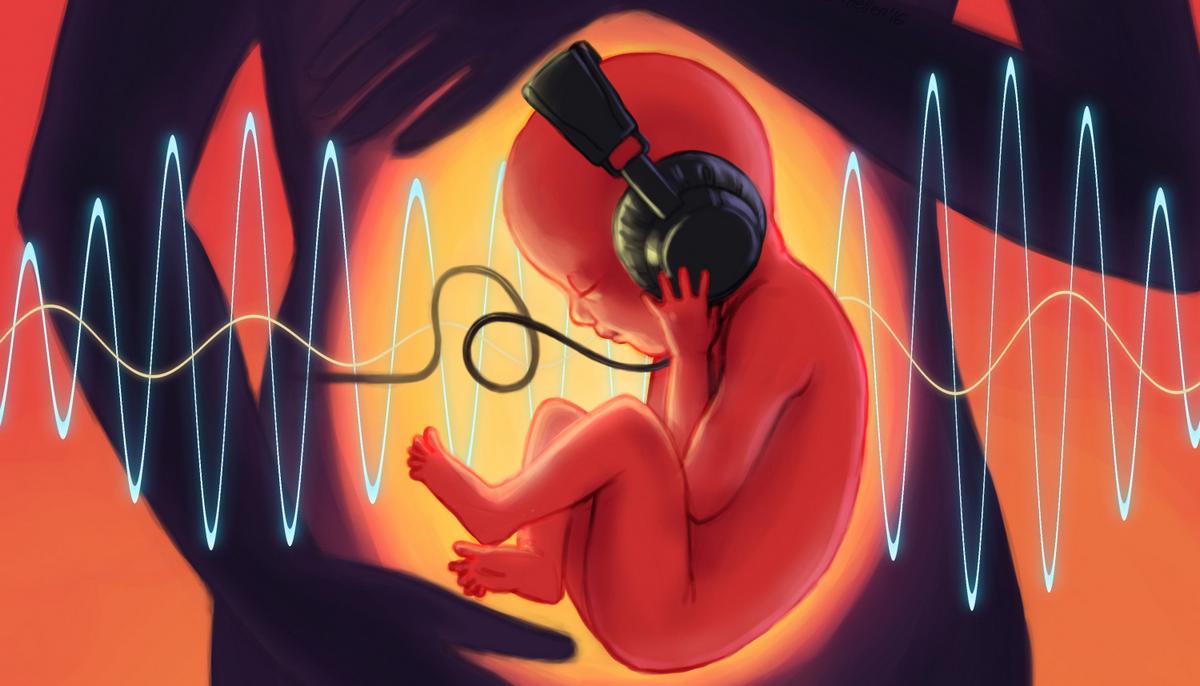Have you recently found out that you will be a mother and want to discover more about the miracle of intrauterine life? The baby has started to grow and you are curious to know what his daily schedule is, if he can hear you or if he feels, for example, the taste of the food you eat? What does the baby do in the belly?
The baby is moving
Although the baby's movement is impossible to perceive at such a small size, starting with the 8th week of pregnancy, babies move. If she is in her first pregnancy, the mother will perceive the movements starting at 4 and a half months, and for the following pregnancies, being used to that sensation, the movement can be felt earlier, in the 4th month of pregnancy.
The average number of kicks per day is 15-20, but babies are different. Usually, when the mother is at rest, she perceives the movements more often and more intensely. Babies sleep in the mother's belly for approximately 17 hours a day, in intervals of 40-50 minutes. If your baby does not react to external stimuli such as loud noise, your voice, or you notice a decrease in the frequency of movements in a two-day interval, it is recommended to consult the gynecologist, these signs may indicate fetal distress.
The baby hears
Studies say that the baby's hearing starts to be active from the 18th week of pregnancy . The sounds have a surprising impact on the fetal heartbeat, depending on the vibration and tonality they can increase or decrease the heart rate. The baby can recognize the mother's voice starting with the 24th week of pregnancy and responds by increasing the heartbeat.
There are no studies to confirm that symphonic music increases the baby's IQ, but there is research according to which, the growth of a premature baby is faster if it listens 6 times a day for 10 minutes to chill music.
The baby can feel tastes
Starting with the 9th week of pregnancy, the mouth, the tongue and together with it the first buds of the taste buds are formed. The fetus floats in the womb in the amniotic fluid and naturally swallows this fluid and breathes it into the lungs, processes that help the development of the digestive tract and lungs. The flavors of the food you eat will pass through the placental blood into the amniotic fluid, so once your baby tastes the amniotic fluid, he will have his first culinary experience. Especially those intense aromas such as those produced by spicy foods, onions, garlic, vanilla will be perceived more intensely. Babies are born with a very developed sense of taste, the first preference will of course be for sweets, therefore breast milk is exactly what they need. At 6 months, when food diversification begins, your baby may prefer the flavors of the foods you ate during pregnancy.
The baby can smell
Your baby's nose begins to form early, in the first trimester of pregnancy. Nasal openings (nostrils) appear in the second trimester. However, the receptors for smell are formed from the 10th week of pregnancy. This plays an important role in the development of the baby. The smell is related to the taste, thus preferences for certain flavors are created. But the smell also has a close connection with the baby's emotions, being a key element in the process of attachment to the mother. The baby can easily recognize the smell of the mother and breast milk , these smells are connected with the basic needs for comfort and nutrition.
Babies cry
By means of 3D and 4D ultrasounds, the behavior of the baby in the womb was studied and moments were captured when they cry, sometimes associated with the mother's crying or with the mother's suffering. They do not cry with tears, because they can only produce them after they are born, at about 3 weeks of life.
Babies hiccups
Hiccups are physiological for babies and do not represent an alarm signal. This is perceived by the mother as a rhythmic, repetitive movement, at regular intervals, similar to a muscle contraction. As a rule, hiccups appear in the second and third trimester of pregnancy, most of the time after the 6th month. For the baby, hiccups are not painful, but for the mother it can be disturbing, especially if it occurs during the night. To try to stop the baby's hiccups, change the position with the belly facing the left side to promote good oxygenation of the fetus, but most of the time it will spontaneously subside in a maximum of 15 minutes.
Babies feel emotions
Babies use all parts of their bodies to absorb and perceive information about the environment. One of the researchers' most impressive conclusions is that babies can perceive the mother's emotions even from intrauterine life. For example, when the expectant mother is stressed, the fetus tends to touch its face with its left hand several times or may even be caught crying.
The mother's emotions lead to an increase in the levels of some hormones called "stress", such as cortisol, adrenaline, oxytocin. They cross the placenta, and if they are constantly at elevated levels, they can cause maternal hypertension, intrauterine growth restriction, placental abnormalities, premature birth, or they can later even affect adult life, by increasing the risk of diabetes, obesity and cardiovascular diseases.
Everything you do and feel while you are pregnant will be perceived to some extent by your unborn baby. This includes the emotions you experience, the air you breathe, the sound of your environment and the food you eat. Thus, offer your baby a quiet, happy and healthy environment for development. Stress, anxiety, negative thoughts increase the levels of certain hormones that can have an impact on your baby's development.
When you feel overwhelmed by emotions, do not hesitate to talk to your husband, family members or friends who have gone through the experience of pregnancy before and you will see that feelings of intense emotion are normal, and all you have to do is to give them a connotation positive.







